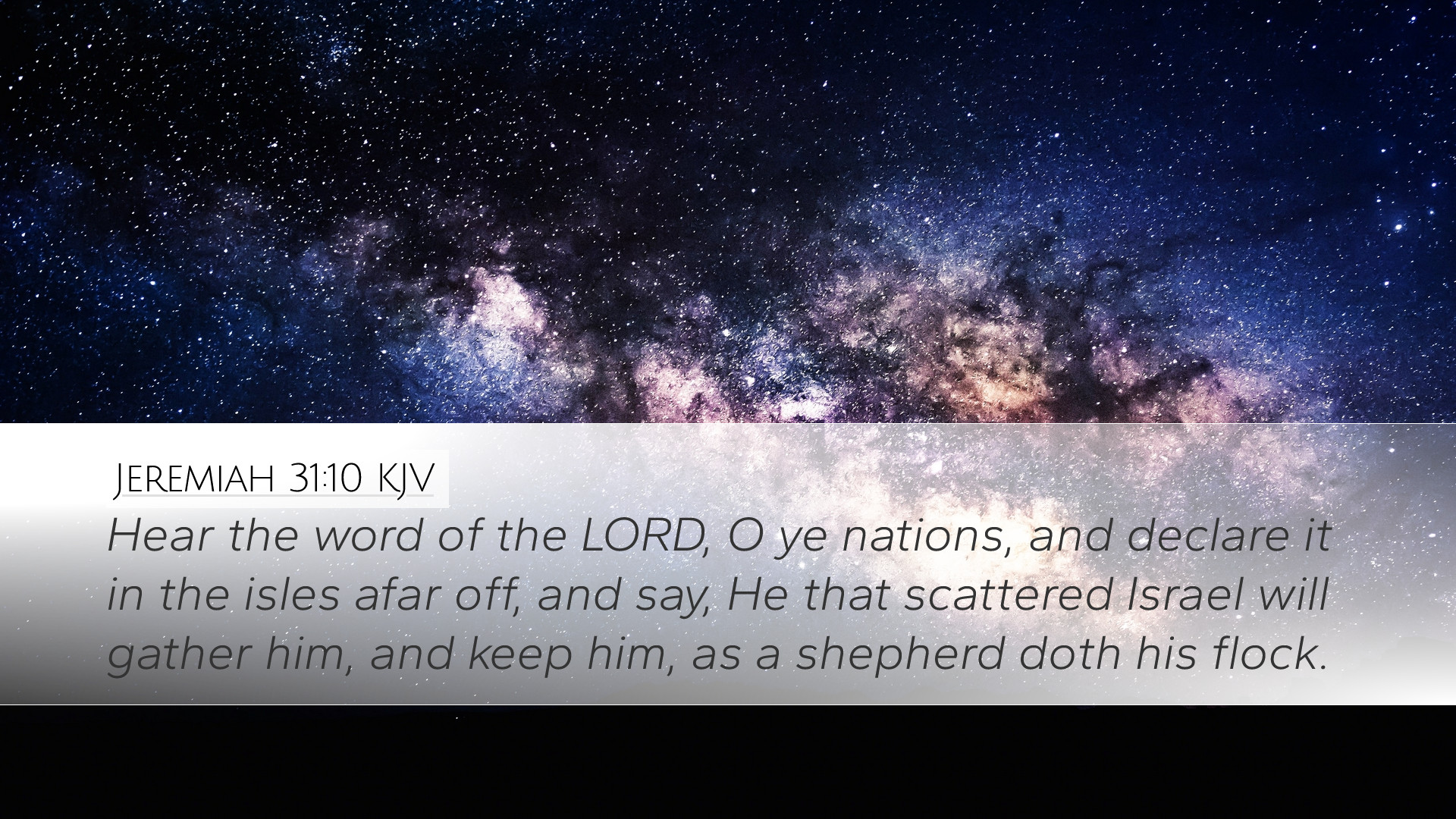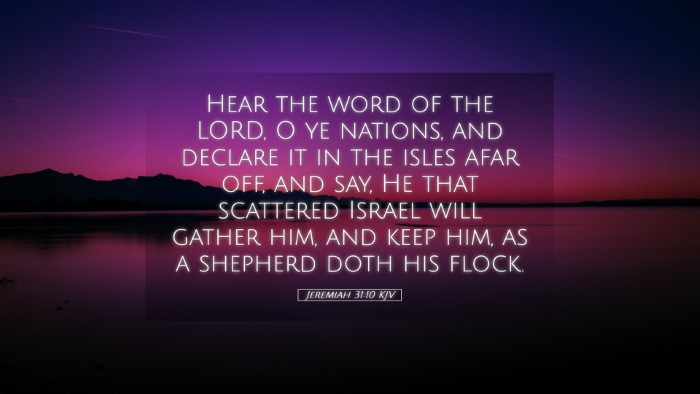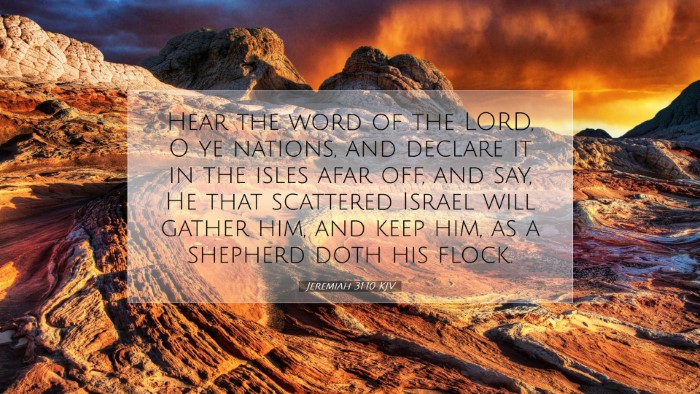Commentary on Jeremiah 31:10
Jeremiah 31:10 states:
"Hear the word of the Lord, O nations, and declare it in the isles afar off, and say, He that scattered Israel will gather him, and keep him as a shepherd doth his flock."
Introduction
This profound verse serves as a bridge between judgment and hope, encapsulating God’s promise of restoration for Israel. Herein, we will explore the insights from renowned public domain commentaries, offering a composite view that can enrich the understanding of pastors, students, theologians, and scholars.
Contextual Overview
As we delve into the context, it is pivotal to recognize that this prophecy comes amidst Jeremiah's pronouncements of impending doom for Judah due to their persistent unfaithfulness. Yet, God, through Jeremiah, provides a beacon of hope. The mention of 'nations' reflects the universal scope of God's sovereignty and His ultimate plan for Israel.
Insights from Matthew Henry
Matthew Henry emphasizes the gravity of the call to the nations. He notes:
- The Importance of Listening: The command to 'hear the word of the Lord' signifies the necessity for all peoples to heed divine proclamation, highlighting God's inclusiveness in His redemptive plan.
- Restoration and Gathering: Henry positively interprets the phrase 'He that scattered Israel will gather him' as a potent reminder of God’s fidelity. Having previously allowed Israel to face consequences for their sins, God promises a restoration that underscores His nature as a shepherd.
- The Role of the Shepherd: The metaphor of God as a shepherd provides comfort and assurance, signifying care, guidance, and protection over His people.
Insights from Albert Barnes
Albert Barnes offers a complementary perspective with his analysis:
- Command to the Nations: Barnes interprets the call to the nations as an announcement of universal accountability to God, reinforcing the theme that His governance extends beyond Israel alone.
- Gathering of Israel: He affirms that the gathering referred to is both a physical return from exile and a spiritual restoration, underscoring God’s longing to reclaim His people.
- Shepherd Imagery: Barnes elaborates on the shepherd image, suggesting that God's willingness to gather His scattered flock illustrates both compassion and providence in His leadership.
Insights from Adam Clarke
Adam Clarke brings in additional depth with his theological insights:
- Global Declaration: Clarke advocates that the end-time vision involves an eventual acknowledgment of God’s authority by all nations, serving as an invitation for repentance and faith.
- Eschatological Implications: He highlights potential eschatological implications of this gathering, where God’s activity is envisioned as culminating in a time of unity under Christ.
- God's Justice and Mercy: Clarke expounds on the balance of justice and mercy within God’s character, illustrated through His willingness to forgive those who have strayed.
Theological Implications
Combining these commentaries encourages a robust theological reflection on God's redeeming work:
- Covenant Faithfulness: The promise embedded in this scripture underscores God’s faithfulness to His covenant with Israel, serving as a template for understanding divine fidelity in our own lives.
- Universal Scope of Salvation: The appeal to the nations aligns with the New Testament proclamation, highlighting God’s intent for all humanity to enjoy His redemptive purposes.
- The Comfort of Divine Care: Recognizing God as a shepherd brings comfort, encouraging believers to trust in His guidance and provision amid life's uncertainties.
Conclusion
Jeremiah 31:10 stands as a testament to the hope and restoration found in God’s nature. The rich insights of Matthew Henry, Albert Barnes, and Adam Clarke converge to illuminate the profound themes of divine gathering, shepherding care, and the inclusive call to nations. As we reflect upon this verse, may it inspire a deeper understanding of our role in sharing the hope of God’s promises with a world in desperate need of His grace.


